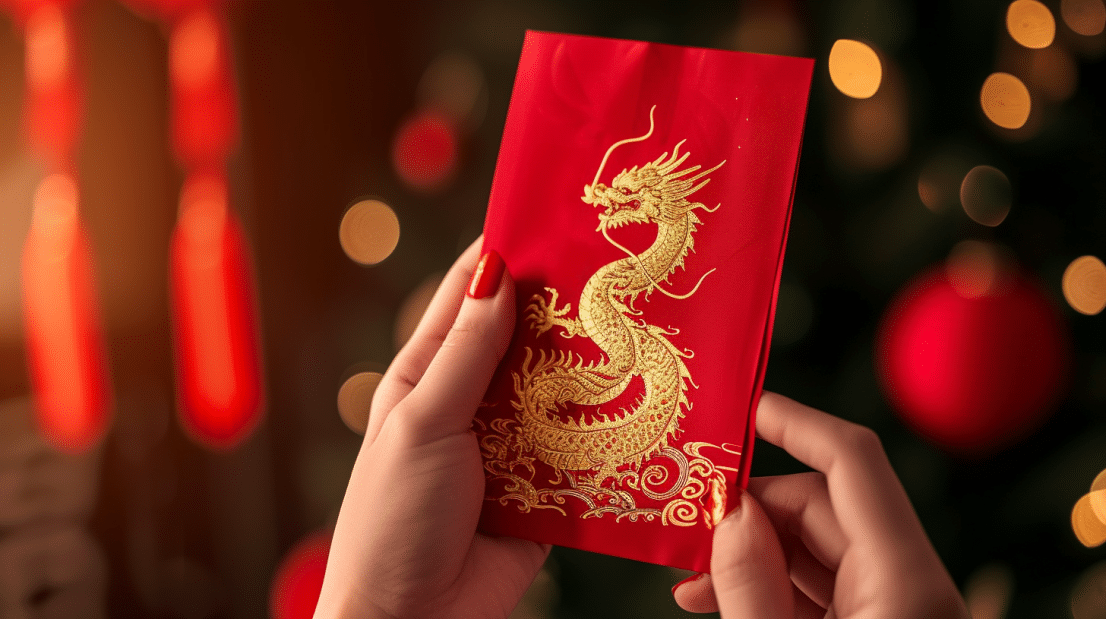Should Christians have anything to do with the dragon this CNY?
Salt&Light wishes all readers a blessed Lunar New Year!
Rev Ng Zhi-Wen // February 5, 2024, 12:43 pm

Even if there are similarities between the Chinese dragon and the Great Red Dragon in Revelation 12, depicted as the arch-enemy of God, we need not fear either of them, writes Rev Ng Zhi-Wen. Here's why.
“This CNY is the Year of Dragon … Dragon on angpow (red packet). How?”
This question was posed to me via WhatsApp by a well-meaning and concerned Zion Bishan BP church member.
Some weeks earlier, someone pointed out that the second day of Chinese New Year (CNY) fell on a Sunday, and it happened that we’d be preaching on the Woman, the Child and the Dragon (Revelation 12).
I assure you that the preaching team did not plan for this coincidence!
But what is the big fuss over dragons, and how should we think and act Christianly about this?
What is true prosperity?
Actually, CNY every year is an occasion for engaging the culture of our time. I reckon we can readily embrace the tradition of family reunion and renewal of kinship ties.
Who oversees all the fates of human-kind, and can we really influence this One with these traditions?
But many attach to CNY traditions various beliefs about prosperity and good fortune: Think of the phrases you are “expected” to say during the lo hei or the exchange of red packets.
Each year is also tied to a particular creature of the Chinese zodiac, each with its unique attributes, “lucky” (and “unlucky”) numbers, and supposed influence on your personality, fortune, family and so on.
Underlying these beliefs is the Chinese philosophy of living in harmony with nature. In practice, what most Chinese people on the street are encouraged to seek is prosperity and good fortune.
Every time CNY comes around, we should ask ourselves: Why do we perform these traditions? What is true abundance and prosperity, and where do they come from? Who oversees our lives, and can we really influence this One with these traditions?
You may also ask your loved ones to consider why they believe what they believe, or follow the traditions – they can be avenues for initiating spiritual conversations (not debates).
Is the Chinese dragon Revelation’s “great red dragon”?
But things get especially tricky when it is the Year of the Dragon.
The dragon is the only mythical creature in the Chinese zodiac and it’s the most auspicious. It symbolises the power and majesty of the Emperor, abundance and longevity.
Such beliefs are not trivial and can exert a strong influence on people. For instance, the Year of the Dragon is correlated with more births in Chinese-majority nations.
The real trouble for us comes with this zodiac creature’s connection to the “great red dragon” described in Revelation 12 and elsewhere. It suffices to say that this dragon is no friend. He is the arch-enemy of God and of His people.
We should not let any sign of the dragon exert a controlling influence on us.
Should Christians dabble in anything that carries signs of the dragon, especially during this CNY?
First, we should be careful about identifying any dragon that we encounter today with that great red dragon.
The great red dragon is not the ‘Chinese’ dragon. The Chinese dragon is often seen as benevolent and not as the embodiment of evil. Chinese Christian scholars have even questioned whether the word for the creature called long2 (龙 / 龍) should have been translated as “dragon”.
For that matter, the great red dragon in Scripture is also not a western dragon. It is true that western dragons are typically fearsome, aggressive and evil, but even that depiction is bound to specific times and contexts.
The dragons in How to Train your Dragon are certainly very different from the ones in The Hobbit or in the Harry Potter series!
The great red dragon is suis generis (Latin for “of its own kind”) and best understood within the world of Scripture.
What we are left with are associations that are concerning, because when many Christians see a Chinese dragon, they cannot help but think of the great red dragon.
- Like it or not, both are called dragons.
- Both have a serpentine appearance.
- They offer the prospect of prosperity and abundance.
- They are both tied to imperial power.
What then?
How to have love, faith and hope in this Year of the Dragon
Even if there are apparent similarities between the Chinese dragon and the great red dragon, we need not fear them.
Giving and receiving angpows with dragon signs in and of themselves do not signify evil on anyone’s part. (Those who do must take issue with all other depictions of dragons, including dragon boats!). We should not let any sign of the dragon exert a controlling influence on us.
We believe that the dragon is defeated, and Christ is victorious. It is so much more appropriate for us then to fix our eyes on Jesus.
Instead of fear, we may act in faith. The next time you see an angpow with a dragon, think more of the red colour of the packet and how it symbolises the blood of the Lamb, our Saviour Jesus Christ.
This is precisely how the great red dragon is defeated: “And they have conquered him by the blood of the Lamb …” (Revelation 12:11). In the light of what Christ has done for us, there is nothing to fear about the dragon. The red packet may even present an opportunity to tell a loved one about Jesus.
We should also act with love. There may be others who are troubled by these associations, and for the sake of their conscience I may (out of love) choose not to give ‘dragon’ angpows.
This follows the apostle Paul’s example. He chose not to eat food offered to idols if doing so would cause a weaker brother to be stumbled, even though he knew full well that the idols had “no real existence” (1 Corinthians 8).
You may consider using angpows that have pictures and wishes that you can heartily assent to. There are even angpows with Christian greetings!
Finally, live in hope. We believe that the dragon is defeated, and Christ is victorious. It is so much better and more fitting to fix our eyes on Jesus and on the great hope that He has secured for us.
It is worth your while to read again and again all the blessings that Jesus promises to give to all who remain faithful to Him (read Revelation 2 and 3). We look forward to a glorious future of eternity with Him – Heaven on earth.
This, my friends, is true prosperity and abundance.
This article was first published in the Zion Bishan Bible-Presbyterian church weekly bulletin on Feb 4.
RELATED STORIES:
We are an independent, non-profit organisation that relies on the generosity of our readers, such as yourself, to continue serving the kingdom. Every dollar donated goes directly back into our editorial coverage.
Would you consider partnering with us in our kingdom work by supporting us financially, either as a one-off donation, or a recurring pledge?
Support Salt&Light



